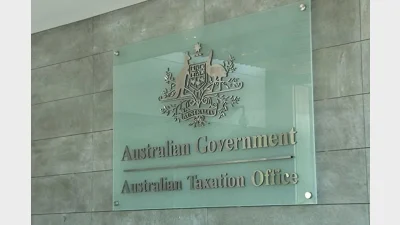(February-2003) Survival of the fittest for players in software market
In a sea of continuous change, the only constant is that change will occur — and so it is in the area of administration software as super funds and their administrators continue in their pursuit of efficiency gains and cost savings.
According to Computer Science Corporation’s head of financial services Rob Davies, tough investment markets have redefined the circumstances in which administrators of super funds and their software providers are having to operate.
“Obviously it’s a cost driven business and with the reduction in investment returns, the administration costs are being passed on to the members,” he says.
In this environment, InfoComp business development manager Bob Luff says the emphasis on lowering costs is more pronounced than normal. Members have become more sensitive to the impact that fees are having on their portfolios, putting pressure on trustees to ensure that they, in turn, lean on service providers to reduce fee levels.
“Certainly there are cost pressures. We’re in a market with very small returns and I think the individual member is now much more aware of their super investment because the returns are so small, and whatever fees they have been paying now seem to be a disproport-ionately high amount in the current environment,” says Luff.
He adds that the situation is made worse because trustees are demanding ever more sophisticated services from administrators at ‘bargain basement’ prices.
“Administrators are getting service requests that they didn’t get before, such as to deploy call centres and to provide members with access to their accounts via the Internet. To do this requires more investment in an administrator’s technology infrastructure, and to make matters worse, it’s something they are having to do at a time when it’s very difficult for them to increase fees,” he says.
Essential Computer Systems general manager John Laverty agrees with Luff, but adds that at the end of the day, the onus is on the software provider to come up with innovative products and systems to satisfy members’ needs.
“Funds and administrators are requiring systems that cater to the full suite of financial services products: super, allocated pension and other non-super investment retirement products. So it is a key requirement that systems are developed by software companies with this in mind,” Laverty says.
“We see a rationalisation of the industry where super funds are becoming financial services providers and their clients are expecting more than just superannuation products. They want non-super savings products. They want retirement products. They want planning services. I suppose they want the whole range of products and services.”
However, Noel Davis, a consultant to Mallesons Stephen Jaques, notes that the demand for broader service is not the only challenge faced by service providers. “Because of the significant [family law and tax] legislative changes that are taking place, super administrators are having to change their computer programs fairly significantly, which means they are having to spend money. So the biggest challenge is to get it right and accurately incorporate all the changes to family law and tax legislation,” he says.
DST International managing director Ian Mathieson believes that for administrators, in particular, to remain viable businesses, it is essential that they diversify.
“Ultimately, those that are outright administrators, those that make their money just out of administration, are the guys that are going to find it hard because they’ve got to find their profit solely out of that activity, whereas they may come up against a bank which perhaps is almost looking to treat administration as a loss leader because it gets other benefits from it,” he says.
However, in an environment of shrinking margins and an uncompromising focus on costs, Luff believes the market is more interested in ‘getting things right’ rather than on innovation and product development, or on embarking on strategic expansions of their business plans.
“There is a focus within the market at the moment on getting the core business right so that’s where the pressure is on the vendors. There isn’t a lot of capacity for new products so the focus is more on making sure that the software in place works day-in, day-out,” he says.
According to Mathieson, the underlying challenge for administration software providers is to look for ways in which labour intensive processes can be automated to achieve cost savings and greater efficiencies.
“Our challenge is to endeavour to help clients keep their costs as low as possible and this is achieved by embarking on better straight-through processing initiatives. Really, it’s trying to find how any of the tasks in an administration process can be automated and reduce the number of people that sit in an administrator’s back office,” he says.
“It’s one thing to try and reduce costs by doing things a little smarter, but in reality, the only way we are likely to see major cost reductions are through straight-through processing.”
Laverty adds that while cost reduction may be one important factor for funds and third party administrators (TPAs), integration is also essential to the success of any business operation.
“We see the key to providing high quality services through all channels, including call centres and the web, as having an integrated solution. This solution needs to encompass all facets and systems, including administration, financial, call centre, the web, CRM and workflow systems,” he says.
“Funds and administrators are looking to utilise best-of-breed components across these areas to enable the most seamless integration of the different areas and into forming one overall integrated solution.”
When deciding on what platform to use, there are two basic models of software products for funds and TPAs to choose from, says Australia First Superannuation Administration director Peter Peterson.
“The biggest issue for me is the idea of: do you buy the software and have it updated from time to time, or do you adopt the ASP (Application Service Provider) approach where you actually run off the provider’s system?”
However, Luff believes that irrespective of whether you take a product in-house or opt for an ASP approach, it’s all about long term commitment.
“In the Australian market, there has to be a commitment by a provider to move a product forward. A huge part of our R&D spend this year has been on keeping the product in line with legislation,” he says.
However, having the software to run a successful administration platform in an ever increasingly complex market comes at a price and Mathieson believes the cost may be too much for those providers which are unable to achieve economies of scale.
“We do need to recognise that there can ultimately only be a few third party administrators in a market [of size.] We could probably get by with three. Certainly you’d always want a minimum of two for competition but three would be a good balance and certainly five is overkill as you’re giving people too much choice in an area which is limited in the level of differentiation that can be achieved,” says Mathieson.
“I do envisage this happening over time but unfortunately, like many of these things, it’s a process of trial and error, and somewhere along the line, we have a few casualties with only the strong ones surviving, a process which is costly to the industry.”
Recommended for you
The responsible investment body is warning that a one-size-fits-all ESG framework mirroring those in the UK and the EU could do more harm than good.
Australian super funds are monitoring the US closely as President Donald Trump increasingly intervenes in corporate policy, moves that are reverberating through global markets and prompting reassessments of portfolio risk.
Industry fund HESTA has filed an appeal against an ATO decision on tax offsets from franking credits, with the Australian Retirement Trust set to file a similar claim soon.
The latest superannuation performance test results have shown improvements, but four in 10 trustee-directed products continue to exhibit “significant investment underperformance”, warns APRA.











